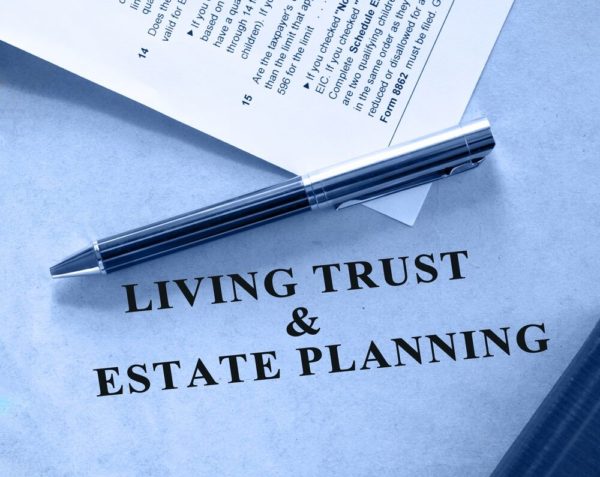

Even if you are single, childless, and don’t have any immediate family members to inherit your estate after you die, there’s still plenty you can do in terms of estate planning.
“Regardless if there are no heirs, everyone should still have an estate plan,” said Erin Voisin, director of financial planning at EP Wealth Advisors. “Do you want the state to figure that out for you?”
When considering estate planning with no heirs, creating a will is one of the basic steps you can take. If you die without one (referred to as “intestate”), the state where you live will divvy up your assets as it sees fit, and the outcome may not be what you intended. If no heirs are found, your property may be escheated, which means the state gets to keep it.
David Shulman, an attorney with Florida estate planning law firm Ginsberg Shulman, wrote in a blog post: “As my old property professor used to say, ‘They call it escheat because you got es-cheated!’”
Where There’s a Will, There’s a Way
So what’s involved with creating a will? The main thing is deciding who you want to receive your assets. You can leave your stuff to anyone you want, such as your spouse, an extended family member, close friend, or charitable organization. And if you have a fur baby, be sure to include arrangements for their care.
Hands-On Retirement Planning
Get access to tools to help you with retirement planning.
You’ll also need to choose an executor for your will who will oversee the distribution of your property. Once again, you can pick whomever you want, but it should be someone you trust and who is willing to serve in this capacity. It’s generally a good idea to talk to the person beforehand to make sure they want to take on this responsibility.
In addition to writing your will, you may also want to think about:
- Choosing a beneficiary for each of your life insurance and retirement accounts. You might think you can simply include these assets in your will, but that’s not the case. You need to complete a beneficiary form to designate who should inherit your life insurance proceeds and retirement savings. These forms supersede any directions you leave in your will.
- Transfer on Death (TOD) designation. “Beneficiary designations aren’t just for insurance and retirement accounts,” says Skyla Wolcott, Manager, Financial Services at TD Ameritrade. “You can designate a beneficiary on a taxable account, such as an individual account. This is referred to as a Transfer On Death (TOD) designation.” Wolcott says such designations also supersede the will and keep the assets from going through probate.
- Naming a power-of-attorney. If estate planning with no heirs, you’ll likely want to designate someone to manage your affairs in the event you become incapacitated. The appointment can be temporary or permanent, and you don’t have to choose just one person. You could name different people to handle your medical and financial matters.
- Creating a living will/advanced health care directive. While you may have shared your medical wishes with loved ones, there’s no guarantee they’ll carry them out. A living will takes the decision out of their hands. It informs doctors of your desired medical treatment when you’re not able to make your own health care decisions.
Estate Planning with No Heirs: Trust the Process
Wills and trusts both allow you to designate someone (a “trustee” in the case of a trust) to hold assets for your beneficiaries or charities and release the assets according to your wishes.
But unlike a will, a trust will typically skip over the probate process, which could allow your beneficiaries and/or charities to receive assets more quickly.
There are many different kinds of trusts, so choosing the right one is important.
Let’s say you don’t wish to designate any family or friends to inherit your property, so your estate plan has no heirs. In that case you may want to consider a charitable remainder trust.
You fund the trust with assets, and then the trust pays you over time. When you die, what’s left goes to charity. With these vehicles, you can set yourself up for retirement income and at the same time create a future donation to a cause you really believe in.
People who don’t set up charitable remainder trusts can list charities in their distribution plans or as beneficiaries of accounts, in the same way they would for friends, Voisin said.
While all this may not sound like the most fun thing to do on a weekend, consider what’s at stake and the power a little forethought can mean for your assets. As Voisin puts it, estate planning, with or without heirs, is “control from the grave.”
Source: Amitrade
more recommended stories
 Fentanyl Seizures at Border Continue to Spike, Making San Diego a National Epicenter for Fentanyl Trafficking
Fentanyl Seizures at Border Continue to Spike, Making San Diego a National Epicenter for Fentanyl TraffickingFentanyl Seizures at Border Continue to.
 Utah Man Sentenced for Hate Crime Attack of Three Men
Utah Man Sentenced for Hate Crime Attack of Three MenTuesday, August 8, 2023 A.
 Green Energy Company Biden Hosted At White House Files For Bankruptcy
Green Energy Company Biden Hosted At White House Files For BankruptcyAug 7 (Reuters) – Electric-vehicle parts.
 Former ABC News Reporter Who “Debunked” Pizzagate Pleads Guilty of Possessing Child pδrn
Former ABC News Reporter Who “Debunked” Pizzagate Pleads Guilty of Possessing Child pδrnFriday, July 21, 2023 A former.
 Six Harvard Medical School and an Arkansas mortuary Charged With Trafficking In Stolen Human Remains
Six Harvard Medical School and an Arkansas mortuary Charged With Trafficking In Stolen Human RemainsSCRANTON – The United States.
 Over 300 People Facing Federal Charges For Crimes Committed During Nationwide Demonstrations
Over 300 People Facing Federal Charges For Crimes Committed During Nationwide DemonstrationsThe Department of Justice announced that.
